Red de chimpansee en hun leefgebied
Elke dag verdwijnen er chimpansees. Door ontbossing. Door stroperij. Door illegale handel.
Go Ape Foundation komt in actie
Wij beschermen chimpansees en hun leefgebied.
Dat doen we door natuureducatie- en outreachprogramma’s te steunen en de bescherming van natuurgebieden. Omdat de chimpansee ons aan het hart gaat steunen we ook het opvangen en verzorgen van geredde chimpansees. Want wie de natuur begrijpt en respecteert, wil haar beschermen.
Echte samenwerking
We werken samen met zorgvuldig geselecteerde lokale centra en partners die de omgeving én de mensen kennen. Die ook educatie- en outreachprogramma’s hebben ontwikkeld.
Wij bezoeken die centra geregeld zelf en kennen naast het management ook de verzorgers, outreach teams en rangers. Geen hulp van bovenaf, maar schouder aan schouder. Zo bouwen we samen aan een toekomst waarin mens en dier in harmonie leven.
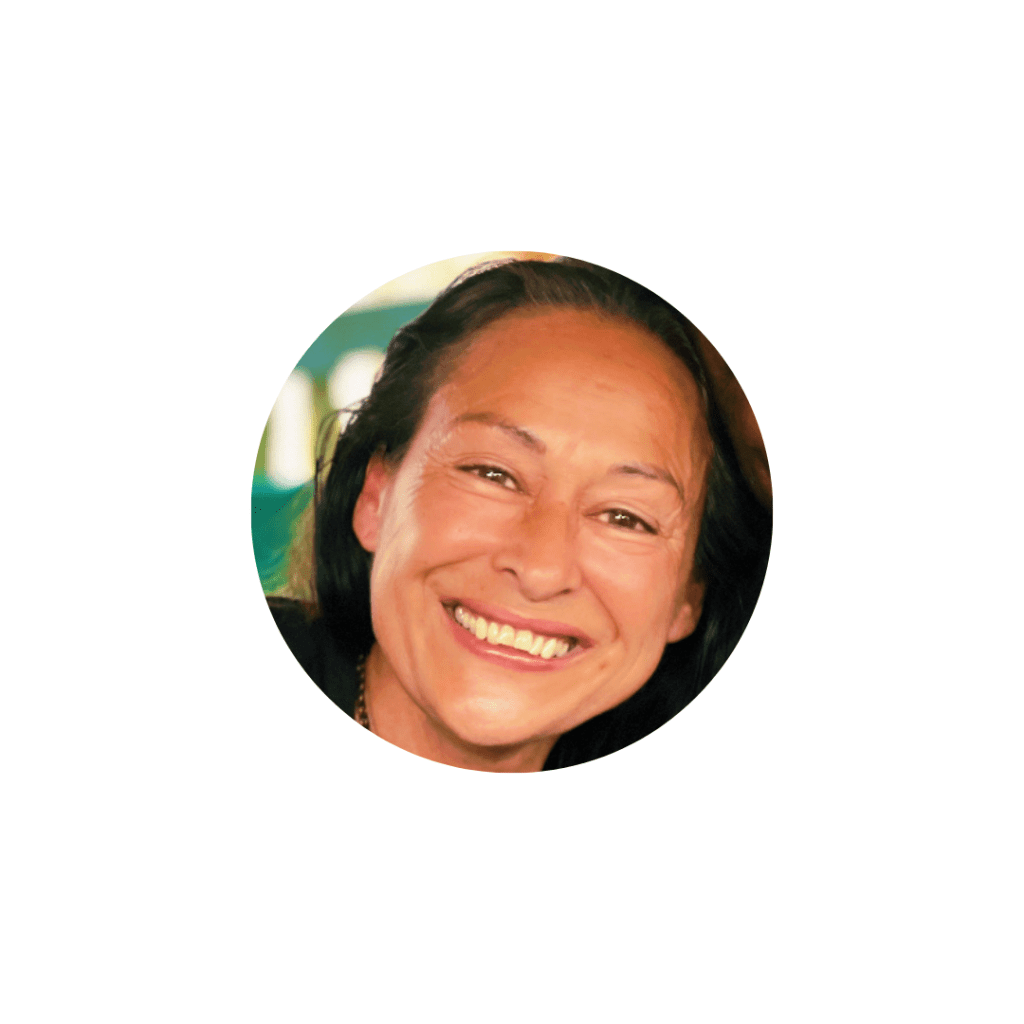
Wie zit er achter Go Ape?
“Na wat ik heb gezien, kan ik niet anders dan in actie komen.” – Rowena Façee Schaeffer
Ik ben Rowena, oprichter van Go Ape Foundation. Mijn missie begon bij Stichting AAP – en leidde me tot diep in de Afrikaanse jungle. Wat als vrijwilligerswerk begon, werd mijn levenswerk: chimpansees redden en hun leefgebied beschermen.
Als communicatieprofessional én veldwerker combineer ik campagnes, educatie en directe steun aan opvangcentra.
Ik ken het management en vele medewerkers van de centra die wij ondersteunen persoonlijk en ik reis er geregeld naar toe, ook om de door ons gesteunde projecten te bezoeken. Daarom weet ik zeker: elke euro wordt besteed aan de bedoelde projecten en komt terecht waar die het meeste verschil maakt.
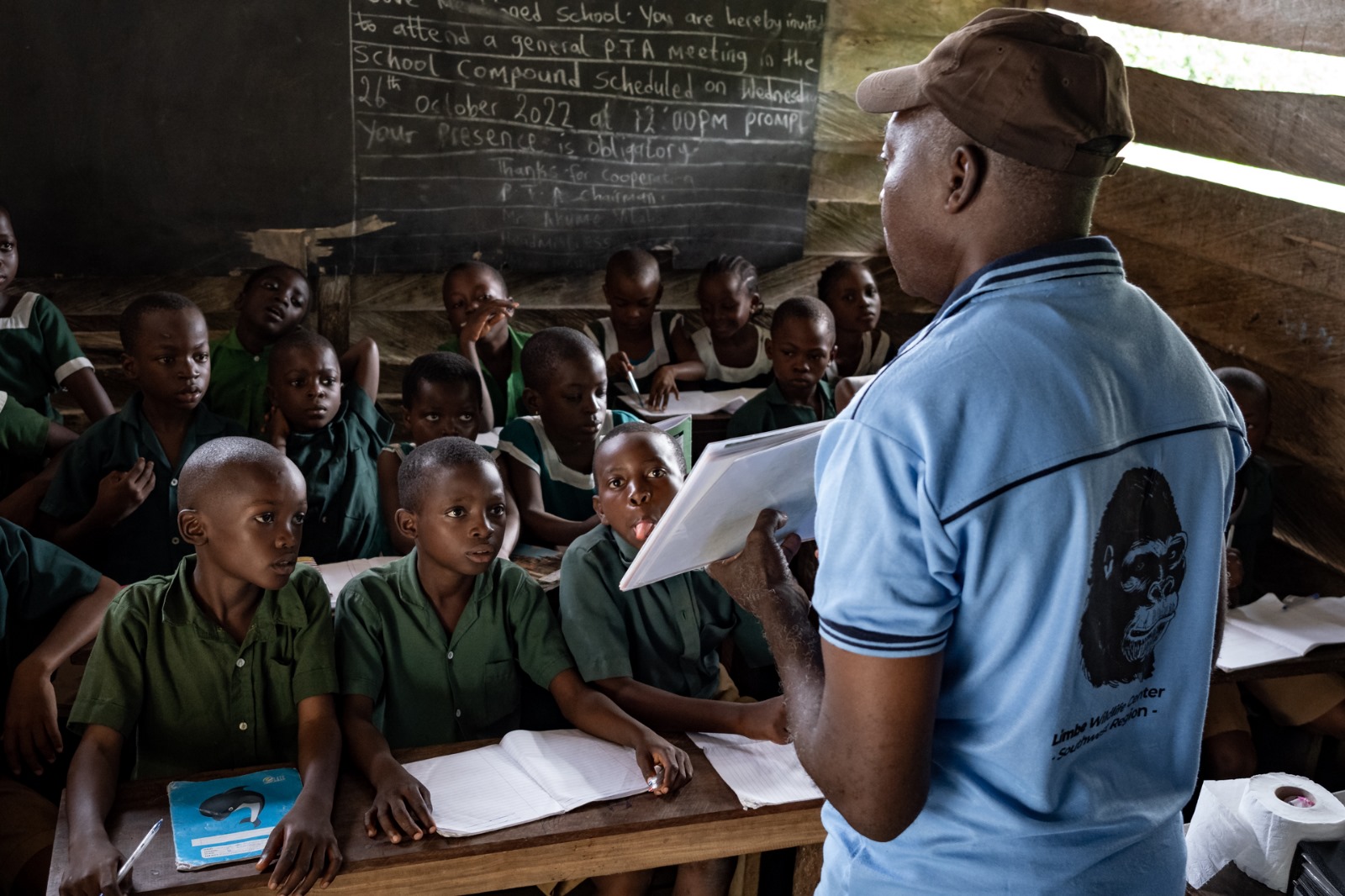
Educatie: investeren in de toekomst
Onderwijs is dé sleutel tot natuurbescherming.
Daarom steunen wij opvangcentra die natuureducatie geven aan kinderen in hun omgeving.
In 2024 bereikten deze centra – met onze hulp – circa 50 scholen in Sierra Leone en Kameroen.
Duizenden kinderen leren zodoende over bossen, dieren, water en hygiëne. Zij nemen die kennis mee naar huis – en maken hun hele dorp bewuster.
In de komende jaren willen we de impact verdubbelen. Help je mee?
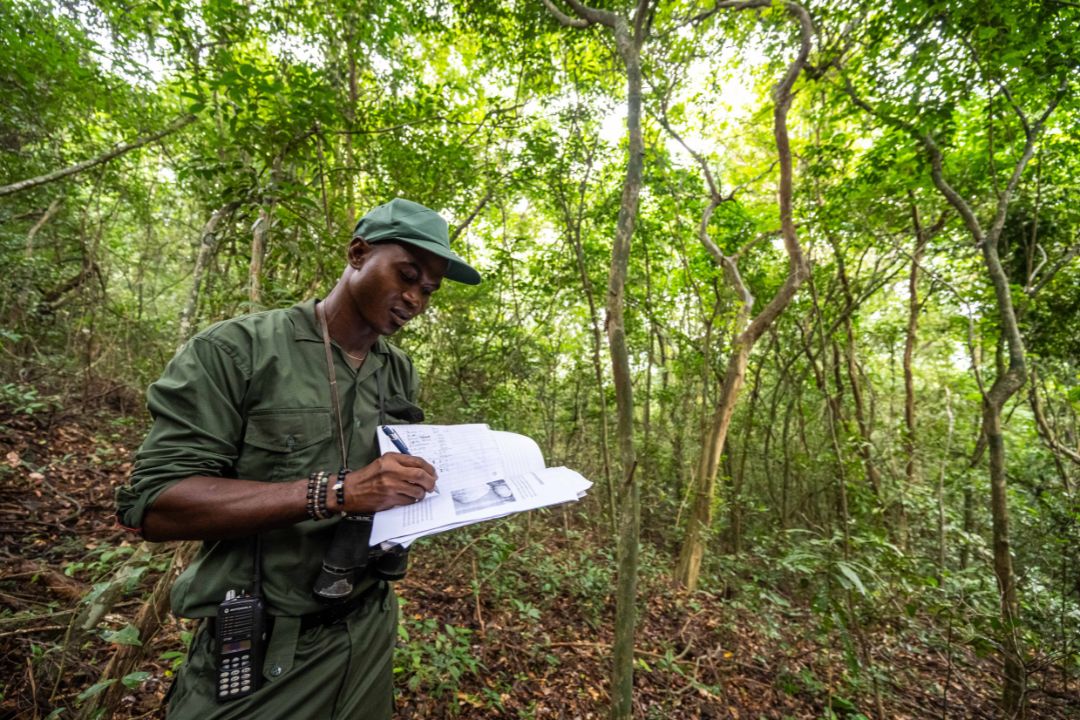
Bescherming van natuurgebieden
Wij steunen opvangcentra waar geredde chimpansees herstellen van trauma’s.
Daarnaast ondersteunen we natuurlijk ook de rangers die de natuurlijke habitat van wilde dieren beschermen.
Met degelijke (regen)kleding, hun uitrusting, telefoons en ‘camera traps’.
Waarom dat zo belangrijk is? Goed uitgeruste rangers kunnen bossen beter beschermen, de populaties van wilde dieren monitoren en stroperij tegengaan. Zij zijn de frontlinie van natuurbescherming.
Ook dragen we bij aan herbebossing en lokale projecten die goed zijn voor mens én natuur.
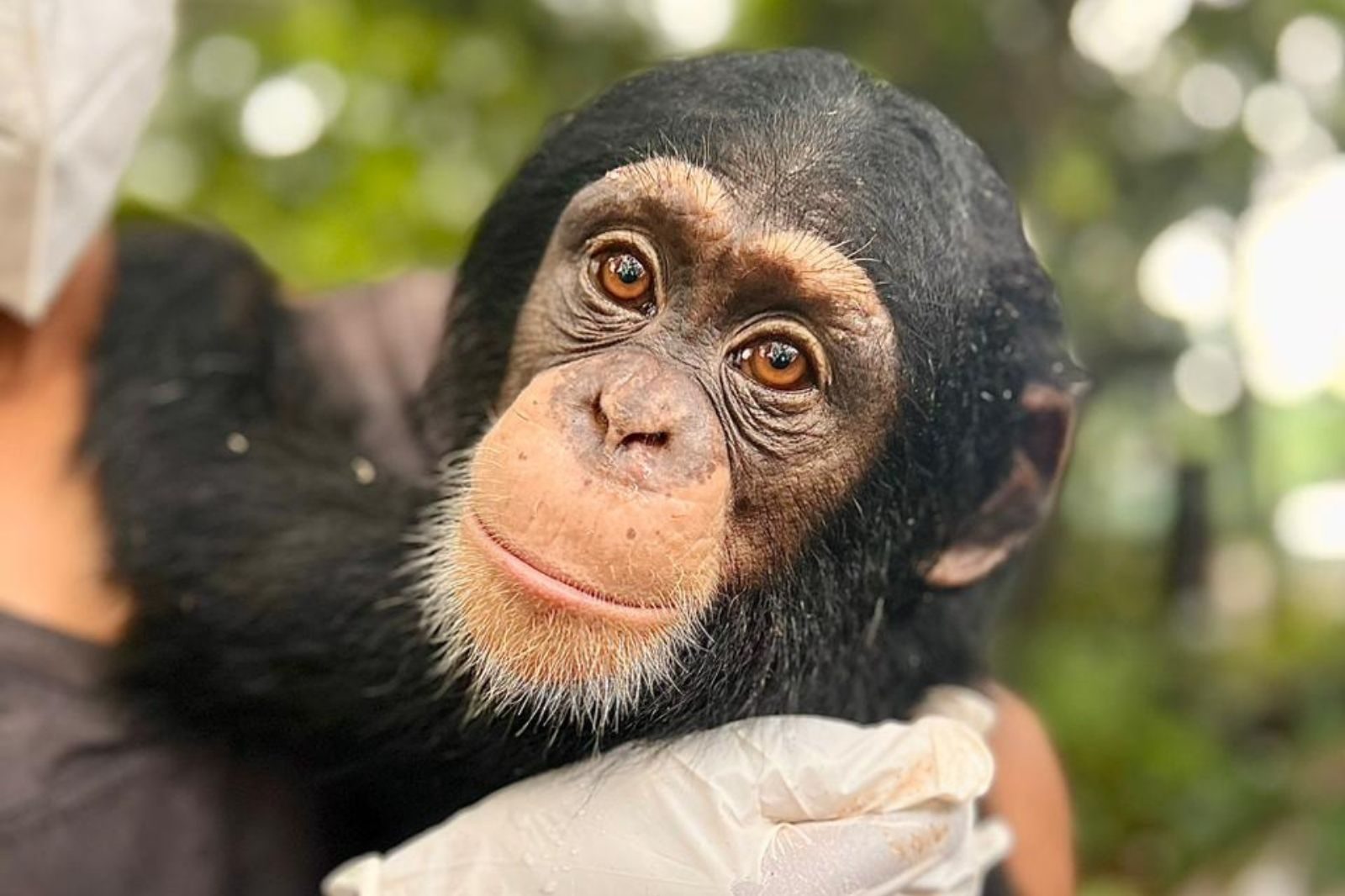
Adopteer een chimpansee
Go Ape Foundation werkt alleen samen met centra die niet alleen dieren in nood helpen, maar ook hun uiterste best doen om het leefgebied van deze dieren te behouden.
Natuurlijk ondersteunen wij ze ook bij de zorg voor geredde chimpansees, want die is intensief en kostbaar. Weesjes uit deze opvangcentra hebben we daarom opgenomen in ons adoptieprogramma.
Via ons adoptieprogramma draag je bij aan de dagelijkse verzorging van geredde chimpansees.
Je krijgt exclusieve behind-the-scenes updates – en wordt deel van hun herstelverhaal.
Geen tijd te verliezen
Al ruim 10 jaar zet oprichter van Go Ape Foundation Rowena Facee Schaeffer zich met hart en ziel in voor chimpansees. Zowel in Nederland als in het Afrikaanse regenwoud. En dat is helaas hard nodig.
Chimpansees redden het niet zonder hulp, kunnen ze op je rekenen? Kom ook in actie, voordat het te laat is!
Geen tijd te verliezen
Naast het ondersteunen van initiatieven op het gebied van natuurbehoud en educatie, blijft Go Ape Foundation natuurlijk ook helpen bij de opvang en het redden van chimpansees. Het dier dat het dichtst bij ons mensen staat.
Elke dag verdwijnen er meer chimpansees.
Nog maar vijftig jaar geleden leefden er ruim een miljoen chimpansees in het wild. Vandaag zijn dat er nog maar 170.000 tot 300.000. Elke dag verdwijnen er meer. Door ontbossing, bushmeat en illegale handel.
Al meer dan 12 jaar zet Rowena – oprichter van Go Ape Foundation – zich met hart en ziel in voor deze dieren en hun leefomstandigheden. In Nederland én op de plekken waar hun leven op het spel staat.
De chimpansee redt het niet zonder hulp.
Wil jij verschil maken? Bekijk onze projecten en steun mee.
Voor de natuur. Voor de toekomst. Voor de chimpansee.
👉 Button: Bekijk hoe jij kunt helpen

Waarom wordt de chimpansee bedreigd?
Door onder meer stroperij, illegale handel en verlies van hun habitat is de populatie chimpansees de afgelopen tientallen jaren enorm afgenomen. Het valt je vast op dat deze bedreigingen door de mens worden veroorzaakt. Dat betekent dat mensen deze gevaren ook kunnen beperken. Dat is niet eenvoudig, maar wel noodzakelijk als we willen voorkomen dat de chimpansee uitsterft.

Hoeveel chimpansees zijn er nog?
Tegenwoordig zijn er nog maar zo’n 300.000 wilde chimpansees, mogelijk slechts 170.000. Ze leven in de bossen van Centraal en West-Afrika. Hoeveel chimpansees en waar ze leven wordt onder andere met camera traps vastgelegd, die worden geïnstalleerd op plekken waarvan men vermoedt dat er chimps leven.

Alle soorten chimpansees zijn bedreigd
De chimpansee is een Afrikaanse mensaap. Er zijn vier ondersoorten, de verschillen in de soorten zijn voornamelijk gebaseerd op het gebied in Afrika waar zij leven. Alle vier de ondersoorten worden met uitsterven bedreigd. De voornaamste bedreigingen zijn stroperij, verlies van leefgebied en handel in wilde dieren.
Wil jij op de hoogte blijven van het laatste nieuws?
Scan dan de QR-code of klik op onderstaande button, vul je gegevens in en klik op de knop. Zo simpel is het om nu zelf elk kwartaal de nieuwste editie van ChimpMail te ontvangen!
Elk kwartaal verschijnt er een nieuwe editie met nieuws, avonturen en andere chimp wetenswaardigheden. Blader via de button hieronder gerust eens door vorige edities.

Bescherm de chimpansee, ons nauwste familielid
Net als gorilla’s, orang-oetans en de mens behoren chimpansees tot de familie mensapen. Het DNA van de mens komt voor zo’n 98,5% overeen met dat van chimpansees. De gelijkenissen in sociaal en moreel gedrag zijn aandoenlijk en fascinerend. Chimpansees zijn zelfs nauwer aan ons verwant dan aan gorilla’s. Deze bijzondere verwantschap draagt er helaas niet aan bij dat ze veilig zijn voor de mens. Dat moet veranderen, als we willen dat ook in de toekomst chimpanseegeroep in de Afrikaanse regenwouden klinkt. Wil jij daarbij helpen?
“Mensapen zijn heel speciaal. Ze staan zo dicht bij ons dat je begint te twijfelen aan de grens. Of er wel een grens is.”
Frans de Waal
Wij zijn zo trots als een aap op deze mooie referenties!
Ik heb ooit Jane Goodall mogen ontmoeten. Zij zei me woorden die ik nooit meer zal vergeten: "Together we can make this a better world!". Dit motto is ook Rowena op het lijf geschreven. In Sierra Leone bevrijdde Rowena, samen met Jane Goodall’s goede vriend Bala, baby-chimps die door lokale mensen waren gestroopt voor de illegale handel of als huisdier werden gehouden. De blik in Rowena's ogen zie ik dan letterlijk veranderen. Ze is woest omdat voor het stropen van één baby-chimp tussen de acht en tien volwassen chimpansees zijn gedood. Ze is ook laaiend omdat ze de kleine baby-chimp als kersverse wees ziet huilen van verdriet en lijden omdat het aan een ketting zit.
Maar ik zie in Rowena's ogen ook de strijdlust om het dier te bevrijden en op een veilige plek te verzorgen.
Rowena is een uniek mens. Had de wereld maar meer Janes, Bala's en Rowena's. Er is hoop. Want elke dag dat Rowena haar prachtige werk voor de primaten en natuurbehoud doet, inspireert ze anderen. Zoals ze ook míj heeft geraakt.
Ik ben trots. Apetrots...
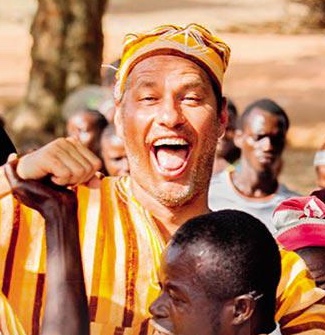
Rowena began volunteering at Tacugama in 2018 and has since been an integral part of our team. For five years, she has effectively managed social media, awareness, and fundraising campaigns with unwavering commitment and thoroughness. Her enthusiasm for the conservation of chimpanzees is truly inspiring, and she has made a significant impact on our organization's mission.
I wholeheartedly endorse Rowena Façee Schaeffer for any conservation or volunteering pursuit. She is a remarkable individual with a genuine passion for making a difference.
Sincerely,
Bala
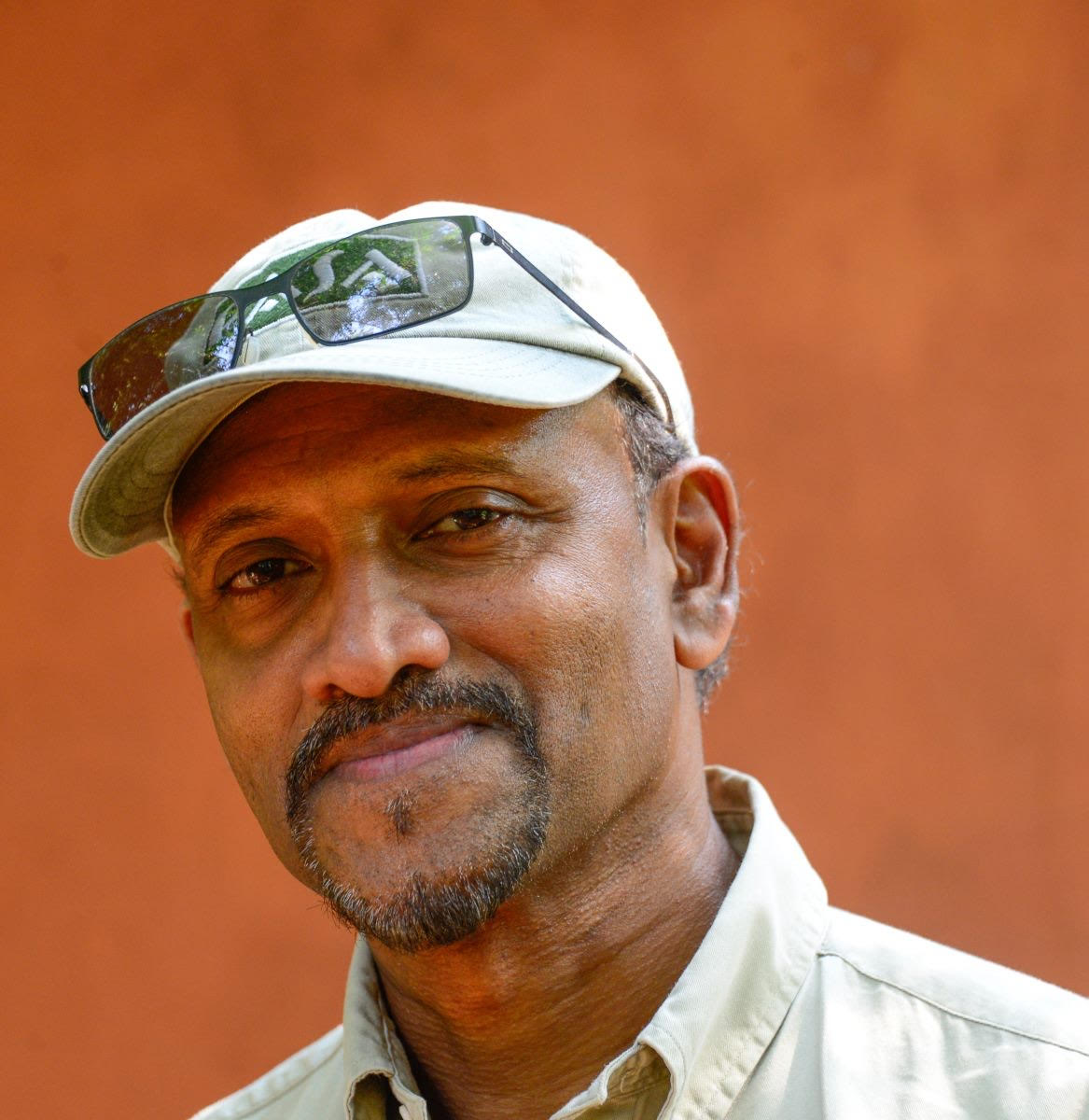
Daarnaast is Rowena, ook op andere momenten in de weer voor Stichting AAP. Soms helpt ze onze Communicatie of Fondsenwerving afdelingen en buiten AAP is Rowena regelmatig druk om dingen in te zamelen voor onze apen. Rowena heeft zich de afgelopen 10 jaar onmisbaar gemaakt als vrijwilliger van Stichting AAP en ik hoop dan ook dat de vrijdag nog heel lang haar AAP-dag blijft.
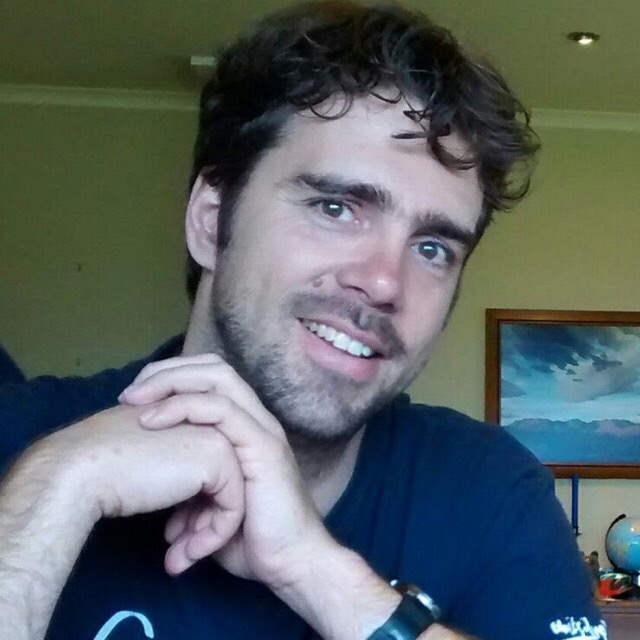
Maar voeg daar gerust de naam Rowena Façee Schaeffer aan toe.
De manier waarop Rowena zich inzet voor het behoud en de opvang van chimpansees in o.a. Sierra Leone vind ik minstens zo inspirerend.
Ik ben dan ook zeer vereerd om ambassadeur te zijn voor haar stichting Go-Ape. Rowena maakt het mede mogelijk om verweesde chimpansees te redden en groot te brengen.
Hoe mooi zou het zijn wanneer we meer mensen enthousiast kunnen maken voor het (financieel) steunen van dit helaas oh zo hard nodige werk.
Ik gun Rowena en alle mensen van project Tacugama dat zij nog lang in staat zullen zijn om onze naaste mensaap de chimpansee in stand te houden.
Laten we daar met z’n allen ons bescheiden steentje aan bijdragen.
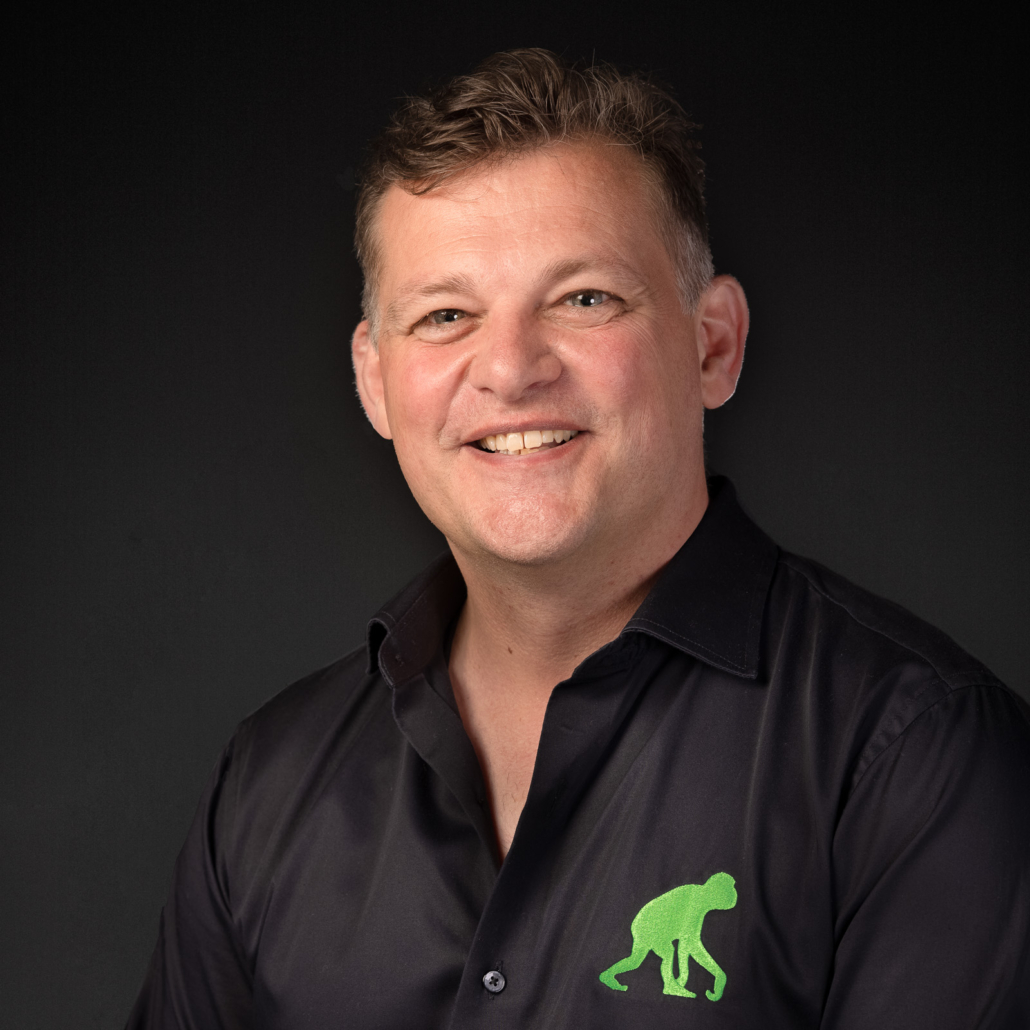
Lees onze blogs

Chimpansees denken. Twijfelen. Herzien. Net als wij.
Chimpansees: slimmer, rationeler en eigenwijzer dan gedacht. Nieuw onderzoek laat zien dat ze ook hun mening kunnen herzien.

Van stropen naar zaaien
In het dorp Batoké, aan de rand van het regenwoud in Kameroen, werken vrouwen en voormalige stropers samen aan duurzame landbouw via het Green Project van Limbe Wildlife Centre.

Nieuwe natuurambassadeurs in Sierra Leone
Vanaf schooljaar 2025-2026 worden zes scholen rondom het Outamba-Kilimi National Park in het noorden van Sierra Leone toegevoegd aan het natuureducatie programma.
